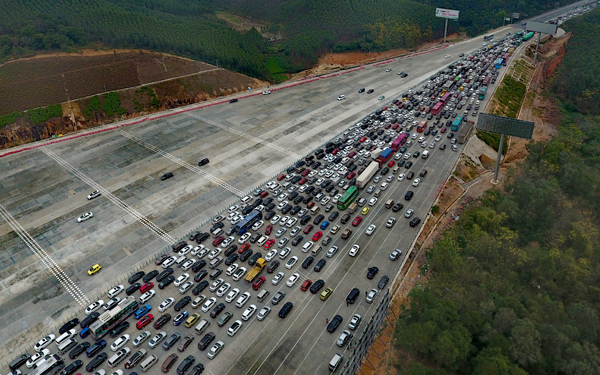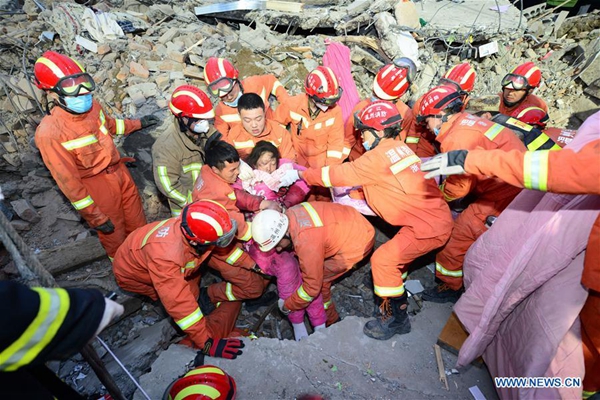 |
|
Traffic slows to a crawl on the Liuzhou-Nanning Expressway in the Guangxi Zhuang autonomous region on Thursday as the highway is overwhelmed with travelers returning home. [Photo/Xinhua]
|
Traffic slowed to a crawl on major highways on Thursday as tens of millions of people returned home after the Spring Festival holiday.
According to China Central Television, about 94.2 million people were expected to travel on Thursday.
Traffic was slow on several major highways, including Beijing-Hong Kong-Macao Expressway and Shanghai-Chongqing Expressway, according to the Ministry of Transport, with traffic jams in some sections extending for dozens of kilometers.
In Henan and Hunan provinces, some highways were partly closed due to snow or smog.
According to the ministry, the rush of traffic into major urban areas, including the Yangtze River Delta, Pearl River Delta and Beijing-Tianjin-Hebei region, was expected to last past 10 pm.
About 1.5 million vehicles were expected on highways in Central China’s Hubei province on Thursday as many parts of the province experienced light rain.
Chen Ying, who was heading to Hubei’s capital Wuhan from the province’s Enshi Tujia and Miao autonomous prefecture, encountered a traffic jam after passing Yichang city.
“I don’t know whether it was because of the weather or there was an accident ahead, but the traffic was terrible,” the 53-year-old said.
She said the traffic was so slow that some people even got out of their cars and did some exercise, and many service zones were so packed that it was hard to find somewhere to park.
The 340 kilometers from Yichang to Wuhan, which usually takes about four hours, took Chen nine hours. “At its worst, we moved only about 5 km in 80 minutes,” she said.
China Railway Corp was expected to log 11.5 million trips on Thursday, 11.3 percent more the last day of Spring Festival in 2016. The company had to add 819 temporary trains to meet the high demand.
About 8.48 million people left Beijing during Spring Festival – 39 percent of the city’s population – according to the Beijing Municipal Commission of Transport. Now, their return is putting stress on the capital’s transportation system.
Almost 1,700 flights were expected in Beijing on Thursday. According to the commission, 224 trains a day arrived at Beijing South Railway Station during the Spring Festival holiday.
The commission said it has taken various measures to help travelers get back home using the capital’s public transport system. From Feb 1 to 4, 1,000 taxis will be dispatched to Beijing South Railway Station and the operation of the subway’s Line 4 will also be extended.

